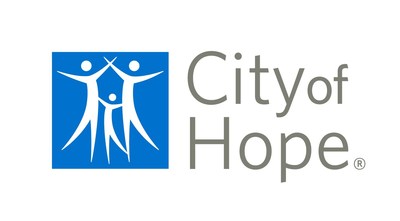City of Hope will showcase breakthrough research and innovative studies at this year’s American Association for Cancer Research (AACR) Annual Meeting, which takes place April 14 to 19 in Orlando, Florida.
|
City of Hope researchers and doctors will also discuss entrepreneurship and quantitative sciences and the role of aging in cancer LOS ANGELES, April 17, 2023 /PRNewswire/ --City of Hope one of the largest cancer research and treatment organizations in the United States, will showcase breakthrough research and innovative studies at this year's American Association for Cancer Research (AACR) Annual Meeting, which takes place April 14 to 19 in Orlando, Florida. "In addition to City of Hope providing best-in-class cancer care and treatment, we are also an incubator for innovative clinical research," said Steven T. Rosen, M.D., City of Hope provost and chief scientific officer, Irell & Manella Cancer Center Director's Distinguished Chair and Morgan & Helen Chu Director's Chair of the Beckman Research Institute. "City of Hope research presented at the AACR conference is a testament to this groundbreaking scientific research and our commitment to bringing more cures to patients." Highlights of City of Hope research presented at the AACR conference include: Targeting Proteins to Stop the Progression of Chronic Lymphocytic Leukemia Yiming Wu, Ph.D., a postdoctoral fellow in the laboratory of Lili Wang, M.D., Ph.D., City of Hope associate professor in the Department of Systems Biology, will present data on chronic lymphocytic leukemia (CLL) research. His presentation, "METTL3-mediated m6A modification controls splicing factor abundance and contributes to CLL progression" will outline important findings from a paper that was published simultaneously in Blood Cancer Discovery journal. In an effort to understand how damage to regulatory mechanisms at the molecular level contributes to the onset and progression of CLL, Wang, Wu and a team of researchers analyzed a range of molecules and proteins for clues. What they found was that METTL3, an enzyme essential to cell growth, controls splicing factors that lead to RNA splicing dysregulation — a feature common in tumors — in CLL. "We found that higher levels of either METTL3 protein or splicing complexes are associated with poorer clinical outcomes," Wu said. "Targeting METTL3 or splicing complexes serves as a potential therapeutic target in aggressive CLL." CLL is one of the most common types of leukemia in adults that is rarely cured, so novel treatment options that could result from the team's findings are greatly needed, Wu added. Testing a New Upfront Treatment Option for Myelofibrosis Myelofibrosis is a different and rare type of blood cancer that disrupts the production of red blood cells and causes scarring in bone marrow. In a poster session, Haris Ali, M.D., City of Hope associate professor in the Division of Leukemia, Department of Hematology & Hematopoietic Cell Transplantation, will present results from "A Phase 1, open-label, dose-escalation study of selinexor plus ruxolitinib in patients with treatment-naïve myelofibrosis," which investigated a combination therapy as an upfront treatment of the disease. In the trial, Ali and other researchers evaluated a combination of the anti-cancer drug selinexor with ruxolitinib, a chemotherapy, in patients who had not yet been treated for myelofibrosis. They found the therapy to be well-tolerated and effective at causing an early response with spleen volume reduction and symptoms improvement. "The future of myelofibrosis for upfront treatment will be combinations like the one we've been testing for a faster, deeper and prolonged response," Ali said. "We hope over time that we will see this combination therapy prevent, or at least delay, progression of myelofibrosis." Reporting on New Results From Phase 2 of the CAPTIVATE Study Phase 2 of the CAPTIVATE trial is investigating the use of ibrutinib, a small molecule drug, combined with venetoclax, an anti-cancer medication. The therapy has demonstrated a deep and durable response in patients with previously untreated chronic lymphocytic leukemia (CLL) who received a fixed-duration treatment. At the AACR conference, research by Tanya Siddiqi, M.D., a City of Hope associate professor and director of the CLL program in the Division of Lymphoma, Department of Hematology & Hematopoietic Cell Transplantation, and medical director of lymphoma, City of Hope Orange County, and team will present new findings from the CAPTIVATE trial in a poster session titled, "Similar outcomes regardless of post-randomization treatment with ibrutinib or ibrutinib + venetoclax in the Phase 2 CAPTIVATE study of first-line ibrutinib + venetoclax in CLL." In the group of participants who had minimal residual disease after their initial treatment with ibrutinib plus venetoclax, patients were then randomized to either continue with the combination therapy or receive ibrutinib alone. "We found that in patients who had minimal residual disease — or very few cancer cells in their blood — but not confirmed completely undetectable minimal residual disease, continued use of ibrutinib plus venetoclax improved rates of undetectable minimal residual disease," Siddiqi said. "However, progression-free disease and overall survival rates were similarly high in patients who continued combination therapy and those who received ibrutinib alone. Adverse event rates also generally decreased over time in both arms." Additional Highlights From City of Hope Participants at AACR:
About City of Hope
SOURCE City Of Hope |





